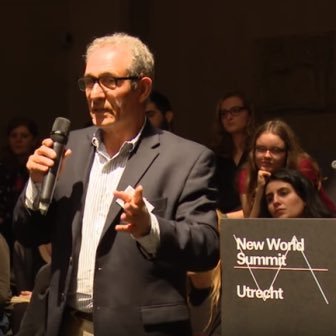We witnessed over the past two months two important developments that will influence the internal affairs of the Wilayet al-Faqih regime in Tehran.
The first was the convention of the 19th National Congress of the Communist Party of China, which led to the re-election of President Xi Jinping for a second five-year term. This will help ensure the continuity of the country’s current development approach over the next five years.
The second development was the 100th anniversary of the Bolshevik Revolution in Russia, which was the rival of capitalism for seven decades. The revolution transformed Russia into the greatest industrial nation to challenge western countries until its sudden collapse in 1991.
The Wilayet al-Faqih figures, from the Rafsanjani, Rezai and other movements, warmly greeted the developments in China, which to them presents the example of a closed political dictatorship that ensures political longevity. At the same time, it provides new opportunities for economic growth at a rate of 10 to 15 percent annually.
According to those figures, this is the example that the Iranian regime is seeking and it should be applied according to the Chinese model for them to tighten their grip across the country and move economic growth forward.
The rising nationalist sentiment among these non-Persian minorities has created panic among the Persian political class
Karim Abdian Bani Saeed
The Chinese model
They believe that the Chinese model allows the Iranian regime to continue along strong principles and roots that are hard to uproot, while also achieving economic growth that appeases the people.
As for the Bolshevik Revolution anniversary, Wilayet al-Faqih intellectuals and politicians, who have actually defected mentally or politically from the ruling regime, warned against introducing reform similar to the ones adopted under the former Soviet Union. Such a step would lead to the total collapse of the Wilayet al-Faqih regime in all of its internal institutions, as well as all of its followers outside of Iran, especially in the Middle East.
Despite this wave of warnings, most of these officials agree that the current political situation in Iran is exactly similar to the historic period that Russia experienced on the eve of the great collapse in 1991.
During the final days of the Soviet Union under Gorbachev, the regime was at the height of its security and political wealth. It had nuclear weapons and enjoyed natural and human resources, as well as diplomatic and political skills. This all soon evaporated and the Soviet Union became a memory of the past. Iran today is passing through the same experience.
Despite Iranian media claims that Tehran is at the peak of its political and military power, there are strong signs inside the country that indicate rampant administrative corruption throughout the state body. There is also major moral decline in society, where over a million prostitutes are working in the capital Tehran alone in what is a sign of how far one would go to fend off poverty.
These signs have not been disclosed by the opposition or separatist figures or the neo-cons of the United States, but by prominent Wilayet al-Faqih officials and major Iranian intellectual and political figures.
‘Balkanizing’ the region
Before addressing the Gorbachev of Iran, there has been recent talks about “Balkanizing” the region. The area is rich with different minorities, such as Ahwazi Arabs, Baluch people, Kurds, Azeris and Turkem, who have grown tired of oppressive Iranian policies. Given this harsh reality, these minorities have had no choice but to commit to the power of their people and activate their solidarity against the turbaned leaders.
The rising nationalist sentiment among these non-Persian minorities has created panic among the Persian political class, from the left and right, from inside and outside the country, and from the liberals to members of the intelligence apparatus alike. They have all stood united against the aspirations of the oppressed people in Iran. These minorities have been labeled as traitors or separatists simply for demanding equality and ending discrimination against them.
This reality has drawn new political lines in Iran. The first brings together all leftist, nationalist and religious factions that support the regime in fighting the oppressed minorities. The second brings together all activists and nationalist movements from the above mentioned minorities, as well as Iranian organizations that recognize the rights of these peoples.
A federal system
This second trend can unite to topple the Wilayet al-Faqih regime and build a diverse political system that respects nationalist and religious minority rights. It can establish a federal system that eliminates centralism and the monopolization of power, paving the way for a country that can coexist in peace with its neighbors.
The non-Persian people have a difficulty in believing in a political figure who can lead a revolt against the Wilayet al-Faqih regime after their experience with Khomeini, whom they trusted before he betrayed them. All nationalist activists instead prefer collective work in order to topple the regime.
After a long experience in confronting the regime, all Iranians, especially the Persians, have realized that the dictatorship cannot be overthrown except through expanding and uniting the opposition.
It should include activists from the various minorities all joined together in one front. The first step in this direction was the formation of the Council of Iranian Democrats in Cologne, Germany last week.
This council brings together all who aspire for real democracy and getting rid of the Wilayet al-Faqihregime. It was a product of a series of consultations over two years between the Persian opposition and different minorities.
The council is set to announce soon a number of future steps that may leave the door open for any side or organization that believes in introducing radical change in Iran and toppling the Wilayet al-Faqih regime.
This article was first published in Asharq Al-Awsat.
_______________________
Karim Abdian Bani Saeed is a human rights advocate and the director of Ahwaz Human Rights Organization (AHRO).
















